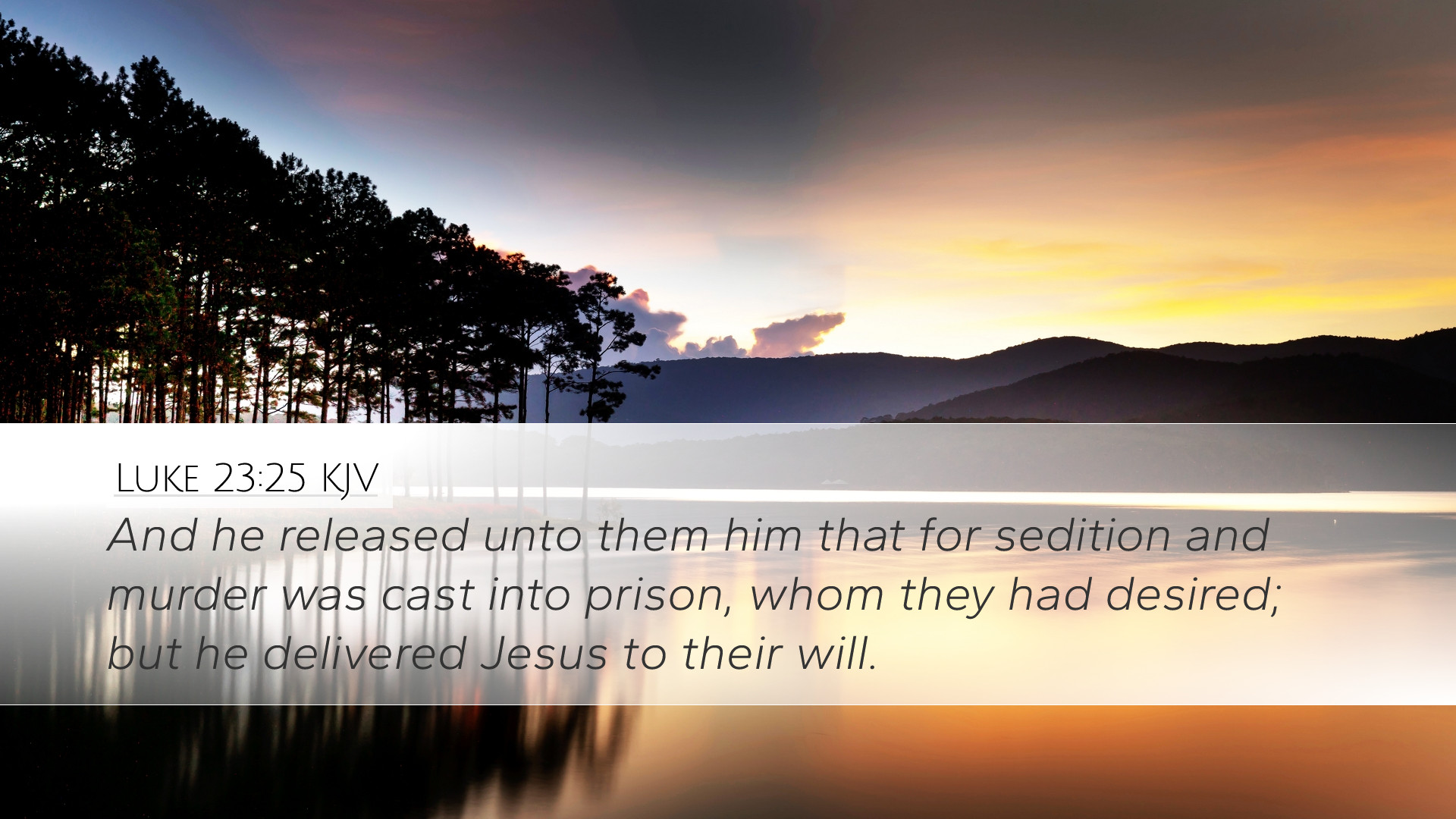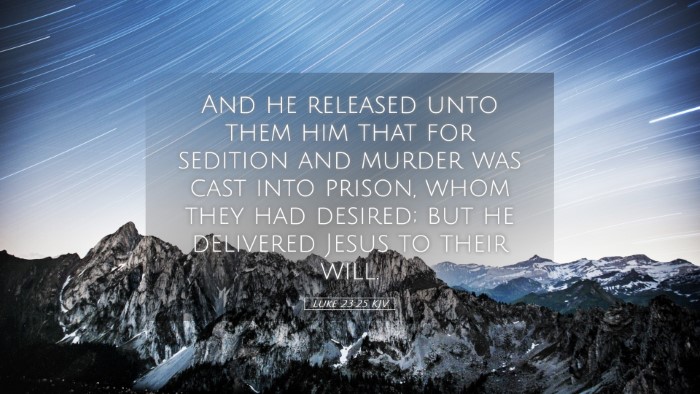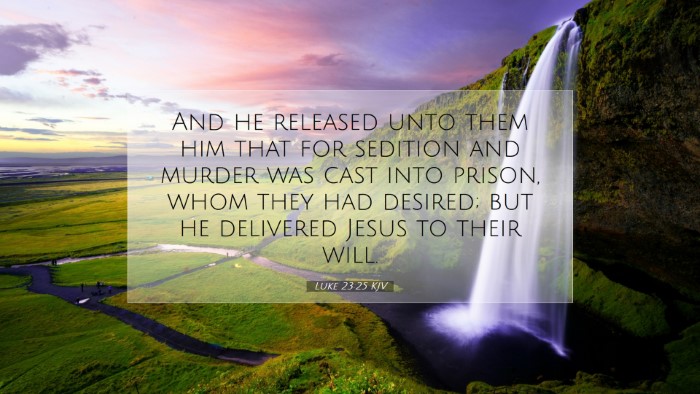Old Testament
Genesis Exodus Leviticus Numbers Deuteronomy Joshua Judges Ruth 1 Samuel 2 Samuel 1 Kings 2 Kings 1 Chronicles 2 Chronicles Ezra Nehemiah Esther Job Psalms Proverbs Ecclesiastes Song of Solomon Isaiah Jeremiah Lamentations Ezekiel Daniel Hosea Joel Amos Obadiah Jonah Micah Nahum Habakkuk Zephaniah Haggai Zechariah MalachiVerse
Luke 23:1 Luke 23:2 Luke 23:3 Luke 23:4 Luke 23:5 Luke 23:6 Luke 23:7 Luke 23:8 Luke 23:9 Luke 23:10 Luke 23:11 Luke 23:12 Luke 23:13 Luke 23:14 Luke 23:15 Luke 23:16 Luke 23:17 Luke 23:18 Luke 23:19 Luke 23:20 Luke 23:21 Luke 23:22 Luke 23:23 Luke 23:24 Luke 23:25 Luke 23:26 Luke 23:27 Luke 23:28 Luke 23:29 Luke 23:30 Luke 23:31 Luke 23:32 Luke 23:33 Luke 23:34 Luke 23:35 Luke 23:36 Luke 23:37 Luke 23:38 Luke 23:39 Luke 23:40 Luke 23:41 Luke 23:42 Luke 23:43 Luke 23:44 Luke 23:45 Luke 23:46 Luke 23:47 Luke 23:48 Luke 23:49 Luke 23:50 Luke 23:51 Luke 23:52 Luke 23:53 Luke 23:54 Luke 23:55 Luke 23:56

